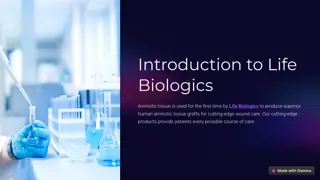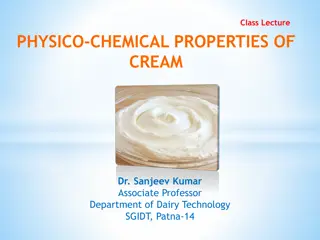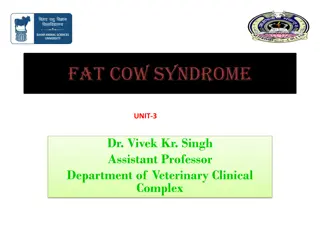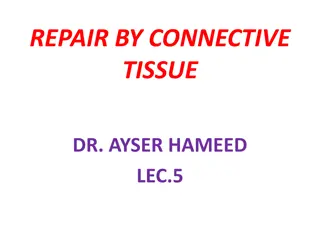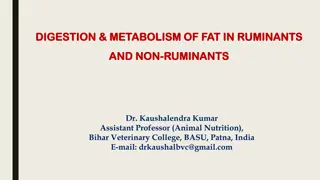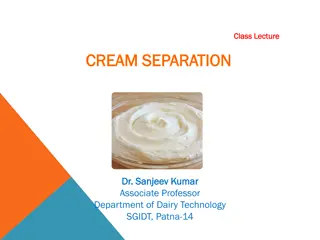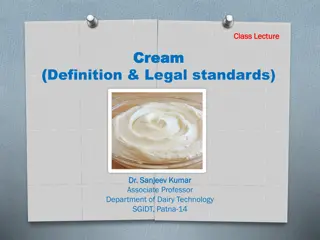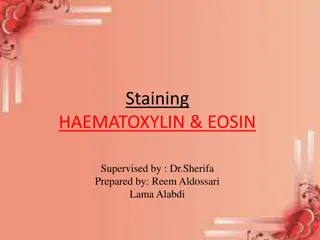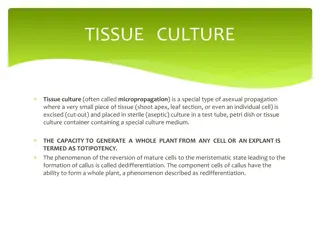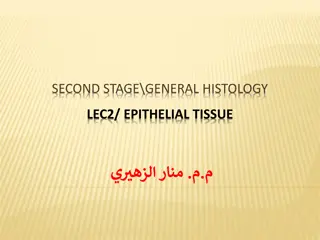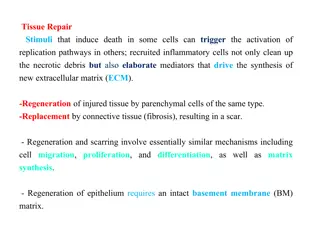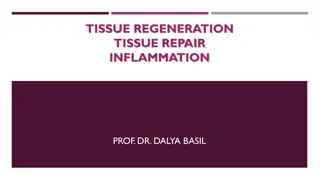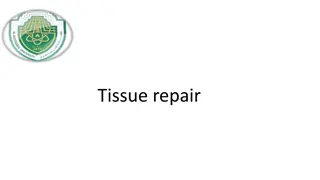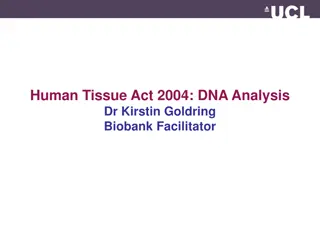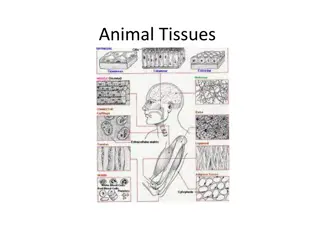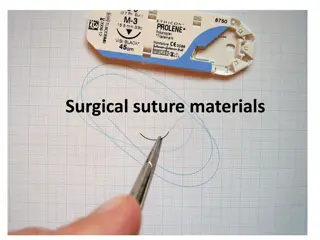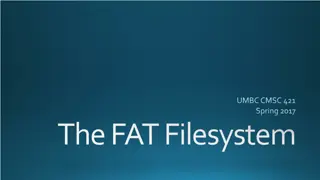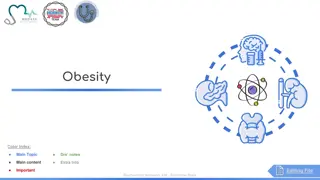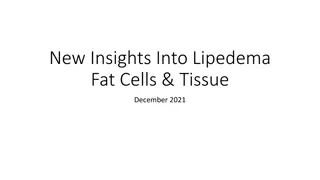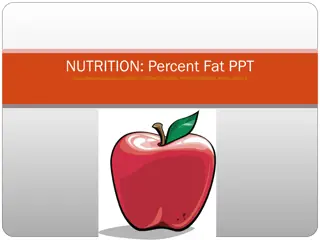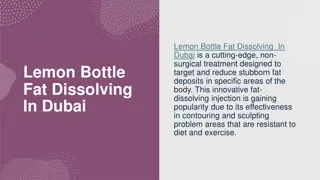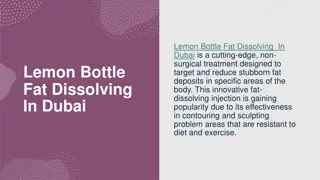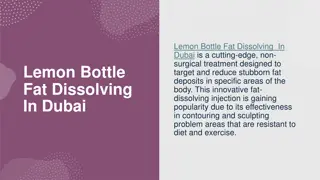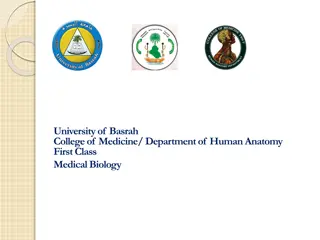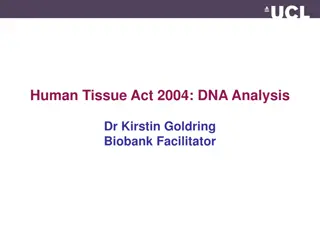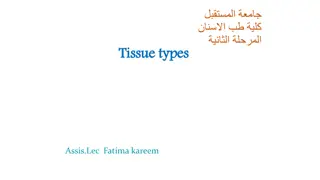You Must Need To Know Something About FAT GRAFTING
A fat grafting procedure in Castle Hill, Frisco, Kings Ridge, The Colony, Texas transfers fat from areas in which you have excess fat and injects it into areas that may be lacking in volume.
1 views • 3 slides
You Must Need To Know Something About FAT GRAFTING
A fat grafting procedure in Castle Hill, Frisco, Kings Ridge, The Colony, Texas transfers fat from areas in which you have excess fat and injects it into areas that may be lacking in volume.
0 views • 3 slides
Advancing Healthcare: Potential of Advanced Amniotic Tissue by Life Biologics
Life Biologics is at the forefront of using amniotic tissue to develop premium human amniotic tissue grafts for advanced wound care. Our innovative products offer patients a comprehensive range of treatment options. Life Biologics' advanced skin substitutes provide a revolutionary solution for both
0 views • 5 slides
Exploring Symbolism and Connections in "Tissue" by Imtiaz Dharker
This analysis delves into the symbolism present in Imtiaz Dharker's poem "Tissue," drawing connections between paper, human skin, and architecture. The poem reflects on the fragility of human power through the metaphor of tissue and explores the intricate layers that make up an individual's identity
0 views • 23 slides
Understanding Plant Tissue Culture: Methods and Requirements
Plant tissue culture involves the in-vitro culture of plant explants under aseptic conditions, covering cell, organ, and suspension cultures. This process, pioneered by German botanist Gottlieb Haberlandt, relies on the totipotency of plant cells. Key requirements include laboratory organization, su
0 views • 18 slides
Understanding the Physico-Chemical Properties of Cream
This informative material delves into the physico-chemical properties of cream, covering aspects such as viscosity, whipping quality, titratable acidity, specific gravity, and factors influencing viscosity. It discusses the influence of fat content, temperature, homogenization, cooling, aging, and c
0 views • 8 slides
Understanding Fat Cow Syndrome in Cattle: Causes, Symptoms, and Treatment
Fat Cow Syndrome, also known as Fatty Liver Disease in Cattle, is a condition commonly seen in high-producing cows during the transition period around calving. The disease is characterized by mobilization of excessive body fat to the liver due to negative energy balance, leading to hepatic lipidosis
1 views • 10 slides
Understanding Repair by Connective Tissue in Healing Processes
Healing or repair by connective tissue occurs in response to severe or chronic tissue injuries, leading to the replacement of nonregenerated cells with connective tissue or scar formation. This process involves the induction of fibroblast and endothelial cell proliferation, granulation tissue format
3 views • 26 slides
Buy Fat Burners Online - buyusapeptides.com
Buy Fat Burners Online might just be the solution you\u2019re looking for. These supplements can boost your metabolism, reduce your appetite, and enhance your fat-burning potential. \nText\/ WhatsApp: 1(747) 566-8992
1 views • 8 slides
Fat Digestion and Metabolism in Ruminants and Non-Ruminants
This article highlights the digestion and metabolism of fat in both ruminant and non-ruminant species. It explains the differences in lipid digestion in the stomach and small intestine of animals, focusing on the role of lipase, bile, and colipase in the breakdown of triglycerides. The process of mi
2 views • 19 slides
Cream Separation Methods and Principles in Dairy Technology
Cream separation in dairy technology involves various methods such as centrifugal and gravity methods. The purpose is to obtain fat-reduced or fat-free milk, concentrate milk fat, standardize fat content, and recover fat. The separation is based on the principle that milk fat is lighter than skim mi
1 views • 12 slides
Understanding Cream: Definition, Classification, and Composition
Cream, a dairy product rich in fat, plays a significant role in various food preparations. Defined by FSSAI, cream is classified based on fat content and end-use into market or manufacturing cream. Its composition includes water, fat, protein, lactose, ash, total solids, and solids-not-fat. Cream ty
0 views • 7 slides
Understanding Cream: Definition, Classification, and Composition
Cream, a dairy product rich in fat, is defined by FSSAI standards as milk fat obtained from buffalo milk. It is classified based on fat content and usage. Cream can be used for direct consumption or manufacturing dairy products. Different types of cream include light cream, coffee cream, whipped cre
1 views • 7 slides
Understanding H&E Staining in Histology
H&E staining, a widely used histological technique, involves staining cell nuclei blue and cytoplasmic components pink to aid in tissue structure analysis. This method provides essential insights into normal and pathological tissue changes, assisting in diagnoses and further testing decisions. The p
0 views • 7 slides
Looking for the best Fat Reduction in Frimley Green
Are you looking for the best Fat Reduction in Frimley Green? Then visit Purple Rose Beauty Room. They are your luxurious retreat for transformative beauty and wellness treatments in Frimley. They specialize in advanced body sculpting and fat reductio
0 views • 6 slides
Best Lemon Bottle Fat Dissolving treatment in Osmaston
If you want the Best Lemon Bottle Fat Dissolving treatment in Osmaston, visit Aesthetics by Kourtney Jade. They specialize in Lemon Bottle fat dissolving treatments, effectively targeting and reducing stubborn fat areas. Their anti-wrinkle therapies
1 views • 6 slides
Understanding Plant Tissue Culture: Techniques and Applications
Plant tissue culture involves maintaining and growing plant cells, tissues, or organs in artificial mediums under controlled conditions. It allows the regeneration of whole plants from small plant parts or cells. Hormones like auxins, cytokinins, and gibberellins are used in the process. Proper envi
3 views • 5 slides
Sheep and Goat Clinic: Feeding, Exercising, and Show Preparation Tips
Topics covered in the Sheep and Goat Clinic include feeding strategies (last 90 days), the importance of balancing fat levels, exercising routines leading up to show day, and final points on feeding and fat management. The images provide valuable insights on feeding athletes, understanding fat level
0 views • 20 slides
Understanding Tissue Culture and Explant Selection in Plant Micropropagation
Tissue culture, or micropropagation, involves propagating plants from small tissue pieces in sterile culture. The process of dedifferentiation and redifferentiation allows for the regeneration of whole plants from individual cells or explants. Explants, selected from meristematic tissue, develop cal
0 views • 47 slides
Understanding Glycaemic Index in Nutrition and Health
Glycaemic Index (GI) measures how carbohydrate-containing foods affect blood glucose levels. High GI foods raise blood glucose rapidly, while low GI foods release glucose gradually. Studies track impacts on blood glucose levels, insulin secretion, fat storage, and pancreatic function. High GI foods
0 views • 15 slides
Understanding Epithelial Tissue in General Histology
Epithelial tissue is a crucial type of tissue in the human body, performing functions like protection, absorption, secretion, and sensation detection. This tissue is composed of cells with minimal extracellular matrix and plays a vital role in various bodily processes. Learn about the classification
0 views • 47 slides
Understanding Tissue Repair Mechanisms: Regeneration and Fibrosis
Tissue repair involves complex mechanisms like regeneration by parenchymal cells or fibrosis leading to scar formation. Inflammatory cells play a crucial role in tissue repair, along with processes like ECM synthesis and cell migration. Different types of cells in the body have varying regenerative
0 views • 20 slides
Tissue Regeneration, Repair, and Inflammation Explained
Tissue regeneration and repair processes involve either regeneration of cells or connective tissue repair, depending on the type of cells injured. In cases where regeneration is not possible, healing occurs through the formation of scar tissue. The healing process aims to restore the structural cont
0 views • 40 slides
Understanding Tissue Repair: Regeneration and Fibrosis Mechanisms
Tissue repair involves two primary mechanisms: regeneration, where some tissues can replace damaged cells, and fibrosis, where scar tissue forms if regeneration is not possible. Cell proliferation, growth factors, and cell population control play key roles in the restoration of tissue architecture a
0 views • 15 slides
Understanding the Human Tissue Act 2004 and DNA Analysis
The Human Tissue Act 2004 regulates the removal, storage, and use of tissue and organs from both living and deceased individuals in England, Wales, and Northern Ireland. The Human Tissue Authority (HTA) oversees the implementation of this act, ensuring safe and ethical use of human tissue. Consent i
0 views • 20 slides
Understanding Animal Tissues: Epithelial, Muscle, Nerve, and Connective Tissues
Explore the four general categories of animal tissue - epithelial, muscle, nerve, and connective tissues. Learn about the traits, classification, examples, and functions of each type of tissue. From the tightly packed cells of epithelial tissue to the excitable nature of muscle tissue, delve into th
1 views • 22 slides
Understanding Surgical Suture Materials and Techniques
Surgical sutures play a crucial role in wound repair by providing support and hemostasis to healing tissue. An ideal suture should meet specific criteria for handling, reaction in tissue, bacterial growth inhibition, knot security, and more. Factors like suture size, flexibility, and surface charact
0 views • 24 slides
Overview of FAT Filesystem: Definitions, History, and Structures
The FAT (File Allocation Table) Filesystem dates back to the late 1970s and has evolved through versions like FAT8, FAT12, FAT16. This system organizes data on disk using a simple yet effective structure of allocation tables for file storage, following Little Endian byte ordering. The FAT structure
0 views • 14 slides
Understanding Obesity: Risk Factors, Fat Deposition, and Hormonal Control
Obesity is a condition characterized by excess body fat accumulation, impacting overall health and increasing the risk of various complications such as diabetes, heart disease, and cancer. This content delves into defining obesity based on BMI, exploring anatomic and biochemical differences in fat d
0 views • 12 slides
Decoding Insights into Lipedema Fat Tissue
Lipedema fat cells exhibit unique characteristics such as fibrous, nodular, and increased stem cells, presenting distinct lipid composition and gene expressions compared to normal adipose tissue. Research sheds light on the cellular and signaling variances in Lipedema fat tissue, highlighting potent
0 views • 11 slides
Understanding Fat Intake and Nutrition Guidelines
Explore the importance of fat intake in nutrition, calculate percentage of calories from fat, learn about recommended fat intake percentages, and understand calorie content in fats, proteins, and carbohydrates. Discover how to calculate fat in foods and determine daily calorie needs based on activit
0 views • 7 slides
Understanding the Basics of FAT File System
The FAT (File Allocation Table) file system organizes files on disk using linked clusters mapped to sectors. Directories store file information, linking clusters in the FAT table. This article explains the disk structure, boot sectors, and data allocation in the FAT system.
0 views • 44 slides
Lemon Bottle Fat Dissolving In Dubai
Lemon Bottle Fat Dissolving is a cutting-edge, non-surgical treatment designed to target and reduce stubborn fat deposits in specific areas of the body. This innovative fat-dissolving injection is gaining popularity due to its effectiveness in contou
0 views • 5 slides
Lemon Bottle Fat Dissolving In Dubai
Lemon Bottle Fat Dissolving is a cutting-edge, non-surgical treatment designed to target and reduce stubborn fat deposits in specific areas of the body. This innovative fat-dissolving injection is gaining popularity due to its effectiveness in contou
0 views • 5 slides
Lemon Bottle Fat Dissolving In Dubai
\/\/sharepresLemon Bottle Fat Dissolving is a cutting-edge, non-surgical treatment designed to target and reduce stubborn fat deposits in specific areas of the body. This innovative fat-dissolving injection is gaining popularity due to its effectiven
0 views • 5 slides
Understanding Epithelial Tissue in Human Anatomy: A Comprehensive Overview
Epithelial tissue is a vital component of the human body, serving as a protective barrier and interface with the external environment. This tissue type, along with other essential tissues, plays a crucial role in the development and function of organs. Learn about the structure, function, and signif
0 views • 22 slides
Understanding Basic Histology and Tissue Types
Explore histology, tissues, and types of tissues including epithelial, connective, muscle, and nerve tissues. Learn about tissue characteristics, differences, and functions, as well as details on specific tissue types like cardiac muscle, bone tissue, skeletal muscle, and smooth muscle. Delve into e
0 views • 74 slides
Regulation of Human Tissue and DNA Analysis under HTA 2004
The Human Tissue Act 2004 regulates the removal, storage, and use of tissues from deceased and living individuals. The Human Tissue Authority oversees the implementation of this act and provides guidance on safe and ethical use of human tissue. The act covers bodily and relevant material and emphasi
0 views • 20 slides
Understanding the Four Basic Types of Tissue
Explore the four basic types of tissue in the human body: connective tissue, epithelial tissue, muscle tissue, and nervous tissue. Learn about their functions and characteristics to gain a deeper understanding of the body's structure and functions after a lecture session.
0 views • 7 slides
Debunking Myths About Sweat and Fat Burn - Vighnharta Hospital
Sweating is often misunderstood as a sign of fat burn, but the two are not directly connected. Sweat is your body\u2019s way of cooling down, not an indicator of calorie burn or weight loss. Fat burn happens when your body uses stored fat for energy
4 views • 4 slides


